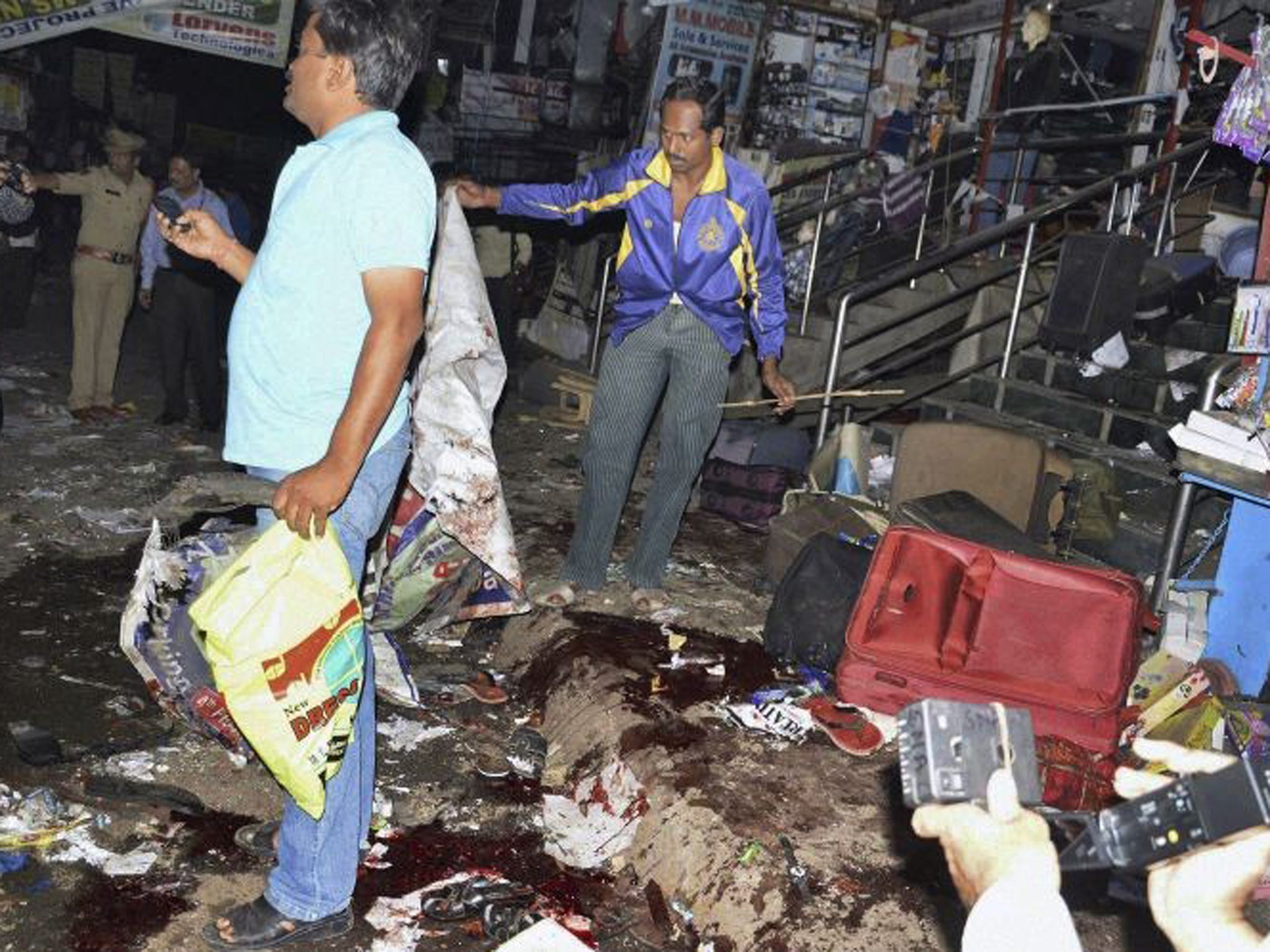A pair of bombs exploded this evening in a crowded shopping area in the southern Indian city of Hyderabad, killing at least 11 people and wounding 50 more in the worst bombing in the country in more than a year, officials said.
The blasts occurred about two minutes apart outside a movie theater and a bus station, police said. Storefronts were shattered and television footage showed the wounded being rushed to hospitals.
"This is a dastardly attack, the guilty will not go unpunished," Prime Minister Manmohan Singh said. He appealed to the public to remain calm.
The bombs were attached to two bicycles about 150 meters (500 feet) apart in the district of Dilsukh Nagar, Home Minister Sushilkumar Shinde said. The district is a usually crowded shopping area near a residential neighborhood.
Eight people died in one explosion and three in the other, Shinde told reporters in the Indian capital of New Delhi.
Mahesh Kumar, a 21-year-old student, was heading home from a tutoring class when a bomb went off.
''I heard a huge sound and something hit me, I fell down, and somebody brought me to the hospital," said Kumar, who suffered shrapnel wounds.
Hyderabad, a city of 10 million, is a hub of India's information technology industry and has a mixed population of Muslims and Hindus.
The explosions were the first major bomb attacks to hit India since a September 2011 blast outside the High Court in New Delhi killed 13 people. The government has been heavily criticized for its failure to arrest the masterminds behind previous bombings.
Home Secretary RK Singh said officials from the National Investigation Agency and commandos of the National Security Guards were leaving New Delhi for Hyderabad.
India has been in a state of alert since Mohammed Afzal Guru, a Kashmiri, was hanged in a New Delhi jail nearly two weeks ago. Guru had been convicted of involvement in a 2001 attack on India's Parliament that killed 14 people, including five gunmen.
Many in Indian-ruled Kashmir believe Guru did not receive a fair trial, and the secrecy with which the execution was carried out fueled anger in a region where anti-India sentiment runs deep.
AP
Subscribe to Independent Premium to bookmark this article
Want to bookmark your favourite articles and stories to read or reference later? Start your Independent Premium subscription today.


Join our commenting forum
Join thought-provoking conversations, follow other Independent readers and see their replies